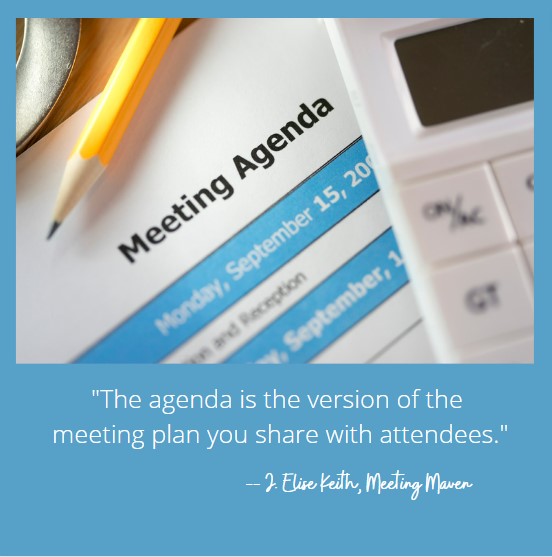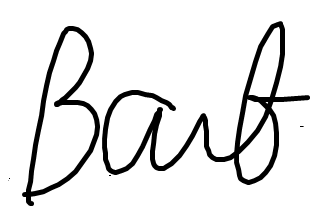|
Originally sent on February 27, 2023

Photo credit: Kameleon007 from Getty Images Signature via Canva Pro
Hi Barb,
It was my final day of work in my previous job. A young supervisor, "Robin," had asked for one last meeting with me and our team, to pick my brain with about things they might need to know after I left.
I reserved a room and sent out a calendar invitation. And at the appointed time, I sat down, waiting for my team's questions.
Robin sauntered in late, looked me in the eye and challenged me, "So, what's the agenda for this meeting, Barb?"
At first I thought she was teasing. But apparently not. She was taunting me as if to say "Gotcha! You call yourself a facilitator, yet you failed to put out an agenda!"
I took a breath, and calmly explained, "You asked me for this meeting, and the agenda is for me to answer your questions. What questions do you have?" A good-natured project manager immediately piped up with a question about our next annual report.
But I felt unsettled. Who WAS responsible for the agenda for that meeting? Was it Robin who asked for the meeting? Was it me, because I scheduled it? Did we even need a formal agenda? What is an agenda, anyway?
What do you think?
For more on this, read today's Pro-Tip below or my most recent blog post, What's essential for an agenda?
Warmly,

Barb Bickford
P.S. If you have questions about agendas, I'd be interested in talking with you about helping me pilot a course about them. Please reply to this email or schedule a call with me.
If an event has already occurred, the links in this email may not work. Questions? Contact Barb.
Creating Robust Questions
As leaders of meetings, we want to encourage people to share their thoughts and solve problems. But exactly how do we craft questions that invite people to find deeper meaning or effective solutions?
On March 8th, I’ll be leading the Washington DC LS User Group in using Liberating Structures to create robust, appreciative, paradoxical questions you can ask in meetings. Learn more and register here. The event is free, and if you are curious about Liberating Structures, you are especially welcome!
Transitions and New Beginnings workshop/retreat
Join us for a restful transformative weekend at St. Anthony's Spirituality Center near Wausau, Wisconsin, this coming weekend, March 3-5, 2023. We'll be using art, conversation, journaling and gentle movement to explore the transitions in our lives. There's room for one more! Register here before Thursday.
Grant-writing resources for non-profits
Margit Brazda Poirier offers a self-paced and comprehensive online recorded course (with her live assistance) in how to write grant proposals. She is also is offering a panel discussion on June 2, 2023 on improving the success of your grant proposals. (Note: I receive nothing for mentioning these...I just thought you might be interested!)
Recent Blog posts
-- What's essential for an agenda?
-- Long-winded report outs got you down?
-- Leading with Gratitude
My current workshops and courses
What needs to be on an agenda?
Today's Pro-tip comes from J. Elise Keith's excellent book "Where the Action is: The Meetings that Make or Break your Organization," a book I highly recommend if you are serious about improving your meetings.
Elise suggests that the agenda is the version of the meeting plan that you share with attendees. Your agenda may be a list of topics to cover during the meeting. It also may be a list of things to do before the meeting (e.g., reading, creating ideas, and so on).
What is more important, she says, is to know your purpose (why you are meeting) and to use an appropriate meeting structure designed to get that result.
There are many good ways to structure a meeting and not all of them involve giving the attendees a list of topics or even process steps (e.g., introductions, brainstorming, discussion, voting) before the meeting.
"For example," Elise continues, "daily standup and shift change meetings do not rely on an agenda. Instead, they follow the same structure every day. Everyone knows what to expect and what to discuss during the meeting without the need for an agenda." The same can apply to workshops.
So, this week, I invite you to be mindful about your agendas. Instead of simply listing topics, first get very clear about your purpose and how you will accomplish it. You may want to create a detailed plan for leading the meeting that you share with people who are leading certain topics. However, you can limit the details on the agenda you send to participants to what they need to know or do to contribute well.
Want more tips? Access Ten Tips to Foster Online Engagement.
If you were forwarded this email and want to subscribe click here
|